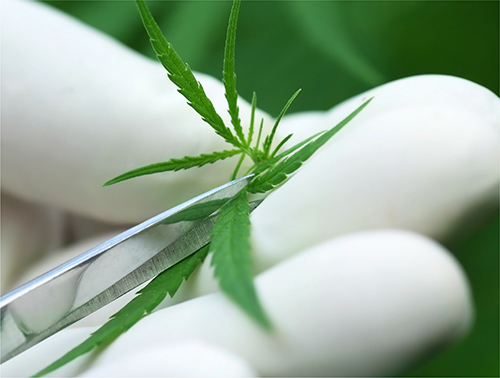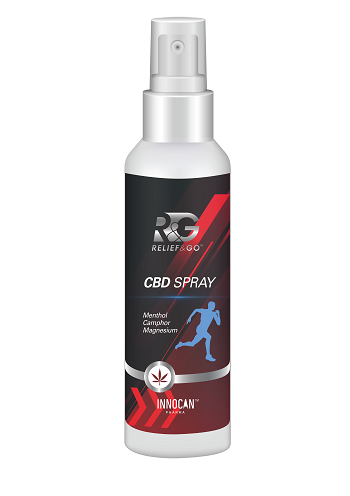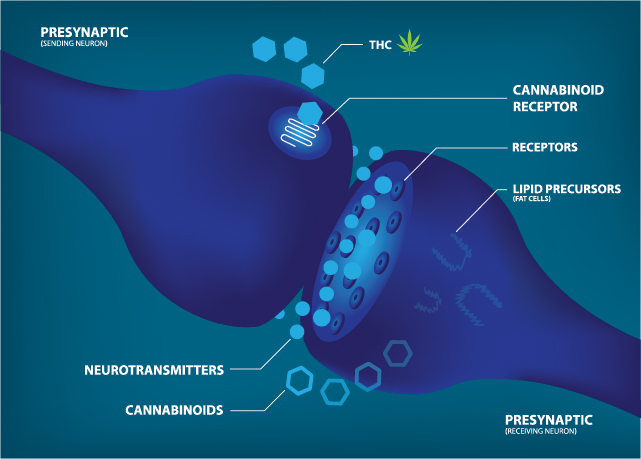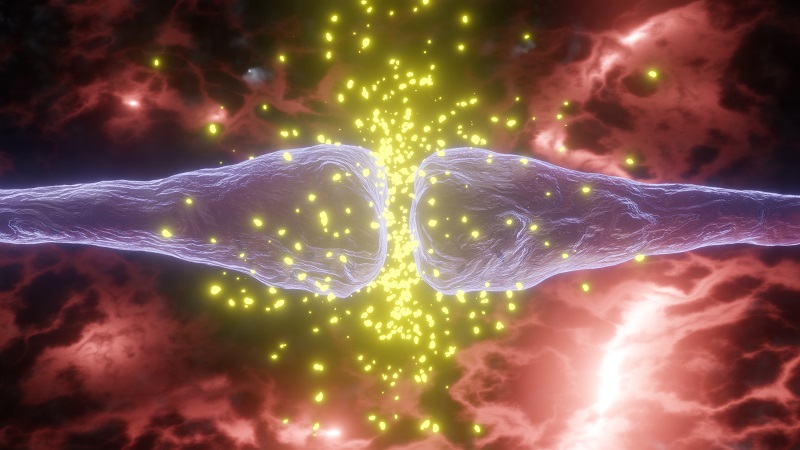Using CBD to Treat the Symptoms of Alzheimer’s & Other Types of Dementia

CBD or Cannabidiol has been potentially powerful in relieving symptoms of numerous diseases and medical conditions, including certain types of cancer (pancreas, breast, skin, and brain), Irritable Bowel Syndrome (IBS), epilepsy, insomnia, depression, anxiety, and epilepsy. It also helps with relieving pain and inflammation and getting rid of the feeling of nausea. Pain and inflammation are taken care of by numerous CBD products like pain relief sprays, pain relief roll-ons, pain relief creams, and pain relief oils, to name a few. Plus, CBD body oils, facial serums, face oils, and anti-acne creams are also used in dealing with skin issues such as dryness, dullness, aging, sunburns, and more.
These applications of CBD are supported by thorough research from numerous institutions, including the European Journal of Pain, Journal of Investigative Dermatology, Journal of Pharmacy and Pharmacology, New England Journal of Medicine, and a study by Vanderbilt University among many others. However, the range of the potential of CBD isn’t limited to just this. Another area of healthcare where CBD can bring significant changes is in Alzheimer’s and other types of dementia. Before getting into why CBD is a great candidate to treat symptoms of Alzheimer’s and other types of dementia, let us first understand what exactly dementia is.
What is dementia?
The term “dementia” doesn’t refer to one single medical condition. It is, in fact, an umbrella term used for several different types of medical conditions related to neurodegenerative disorders, memory loss, loss of motor functions, failure to solve problems, and more. The first type of dementia that most people are familiar with is Alzheimer’s. It is caused when a person’s brain cells undergo rapid decline and destruction leading to symptoms such as memory loss, cognitive thinking loss, no ability to solve problems and think critically, and feeling spaced out or confused.
While Alzheimer’s is the most common type of dementia found in humans, other types of dementia include the following:
- Vascular Dementia
This condition is caused when the brain doesn’t receive a steady flow of blood, resulting in issues with cognitive abilities such as reasoning, planning, comparing, memory, and judgment.
- Parkinson’s Disease
It is mostly marked by symptoms such as tremors, muscular rigidity, and imprecise and confusing movements. Parkinson’s disease is a chronic progressive disease that occurs when dopamine production in our body drops to critically low levels.
- Huntington’s Disease
Huntington’s disease is marked by symptoms like mood imbalance, unsteady gait, and lack of coordination and is caused due to the death of brain cells.
- Frontotemporal Dementia
This is another progressive neurodegenerative disease that causes severe clinical depression, acute anxiety, and psychosis. It happens when nerve cells begin to die in the brain’s frontal or temporal lobe.
Other than these types of dementia, there’s also Creutzfeldt-Jakob Disease, Korsakoff Syndrome, and Mixed Dementia. While there is still no solid evidence of whether CBD can slow down or stop the progression of any type of dementia, there is growing evidence that CBD-based products can help in relieving the symptoms of dementia. These include pain and inflammation in the brain cells, violent mood swings, sudden agitation and aggression, and loss of appetite. In some cases, it has also shown positive results in helping cope with feelings of depression and anxiety and boosting a better mood in patients.
Signs of Alzeihmer’s and other types of dementia
While there can be several different signs of Alzheimer’s and other types of dementia in patients, and some might exhibit them all while some may only exhibit a few, the following are the most common signs:
- Memory loss that disrupts your daily activities
- Sudden memory loss in gaps
- Failure to identify objects and name them
- Spaced out or confused about the daily activities
- Issues with planning, judging, reading, and understanding things
- Sudden and significant changes in the personality of the patient
- Sudden and significant changes in the moods of the patient
- Reluctance to talk to others or go out in crowded places (social withdrawal)
- Reduced sense of judgment
- Misplacing things and failure to remember their placements
- Not identifying family members and friends right away
- Not being able to speak certain words or complete sentences
- Not being able to remember how to read or write
- Forgetting where they currently are
- Not being able to identify common and familiar images (for example, an apple or a purse)
- Not being able to complete familiar and fairly simple daily tasks
- Significant loss in coordination and balance
The life of a patient suffering from Alzheimer’s and other types of dementia can be very tough, problematic, and frustrating. It doesn’t just take a toll on their own selves but also their caregivers and other family members and friends. In such gravely serious medical conditions, any form of relief is welcomed, and CBD can be just that for these patients.
Why is CBD effective in relieving symptoms of dementia?
Most types of dementia are caused by restricted oxygen supply to the brain cell. Further, the resulting pain and inflammation of the brain cells aggravate the symptoms of dementia. For instance, in Vascular Dementia, restricted blood flow to brain cells results in cognitive disabilities. Blood flow to the brain can be brought back to normal by activating CB2 receptors in the brain. CB2 receptors are also known as Cannabidiol2 receptors. This activation can be achieved by introducing CBD in the bloodstream of the patient. Increased blood flow to the brain cells prevents further damage to brain cells and could potentially slow the progression of the disease.
Similarly, the symptoms of Alzheimer’s (pain and inflammation in the brain cells), can be reduced by the use of CBD. With reduced inflammation in the brain cells, the negative impact of the disease can be reduced significantly. CBD-based products such as pain relief oils, pills, or capsules are great options to bring forth such results. It is the anti-inflammatory and antioxidant properties of CBD that make such drastic results possible. There is also evidence that digestive imbalance can further aggravate the symptoms of Parkinson’s disease. Since CBD helps in preventing feelings of nausea and vomiting and also helps patients regulate their appetite, it can be of great help in returning digestive balance in patients suffering from Parkinson’s.
Plus, while traditional anti-inflammatory medicines are not recommended to be consumed in high doses, CBD doesn’t have this restriction. Traditional medicines cannot be taken in high doses since they can cause numerous side effects like heartburn, stomach ulcers, dizziness, ringing in the ears, high blood pressure, kidney and liver complications, skin rashes, and throat and legs swelling. In severe cases of side effects or overdose, these anti-inflammatory drugs can also cause a heart attack or multiple organ failure. However, CBD has very mild side effects. Plus, to date, there has been no evidence of CBD overdose.
This enables healthcare professionals to prescribe higher doses of CBD drugs to relieve the symptoms of dementia in severe cases without having to worry about an overdose. Patients can easily see improvement in high-risk cases without undergoing any severe side effects. Plus, CBD is also not a habit-forming substance. This means that continued usage in high doses and for a long term in dementia patients will not cause them to get addicted to the CBD drugs. They can stop using it as soon as they wish to without any withdrawal symptoms. This is great for patients who might see significant results and then wish to stop using it.
Even though there are numerous reasons for using CBD in relieving symptoms, could CBD potentially stop the onset of dementia as well? While there is no strong evidence to prove this yet, there are several studies that do point towards the possibility of this.
Can CBD prevent the onset of Alzheimer’s and other types of dementia?
According to a study published by Professor David Schubert in the Journal of Neurochemistry, CBD is a substantially powerful element that can remove dementia-causing proteins from the brain. Amyloid-beta is a substance that gets accumulated in the brain before symptoms of any type of dementia, especially Alzheimer’s, become apparent. Amyloid-beta then forms a plaque in the brain cells’ walls, which further destroys the brain and nerve cells. This destruction rapidly aggravates and then causes cognitive issues like memory loss, a decrease in problem-solving skills, poor coordination, and failure to judge, reason, comprehend, and compare.
However, if this plaque can be detected at a premature stage and be destroyed effectively, the onset of any type of dementia can be stopped. This is exactly what Professor David Schubert’s study researched and explained. CBD, coupled with an appropriate dosage of THC, can destroy these plaque-forming cells, thus preventing any kind of dementia altogether. Another study published in the Nature Medicine journal in 2017 conducted by Andreas Zimmer has provided evidence that CBD can, in fact, boost memory and learning skills in mice.
There are other instances where this has been proven as well. However, the lack of confidence in this subject and of human clinical trials thereafter has prevented any further research in this area. If this is put into effect, there could be a possibility of preventing the onset of Alzheimer’s and other types of dementia altogether. However, without any clinical trials, it is impossible to clearly and fully gauge how effective CBD can be from this perspective. It can be a significant breakthrough for patients who have been long-suffering from dementia but haven’t been able to receive any respite from traditional medicines.
Alternative forms of CBD administration is a big plus point
Another significant benefit of using CBD to treat patients suffering from Alzheimer’s and other types of dementia is the fact that it can be administered in multiple forms. In patients suffering from Alzheimer’s and other types of dementia, it can be very difficult to give them medicine during a particularly violent episode. Even on regular days, they can become extremely reluctant to eat or take their medicines. In most of these cases, primary caregivers of these patients need to restrain them forcefully to give them their medicines. In case that the primary caregiver of the patient is a family member or a friend and not a hospital staff member, doing so can be quite an emotional toll.
CBD can provide relief from such instances since it comes in various forms – topicals, edibles, oromucosal, intranasal, and tinctures. Now, you don’t have to force the patient to ingest pills that they are reluctant to swallow. CBD topicals can be applied on their skin, CBD edibles come in the form of gummy bears and chocolates which can be eaten easily, CBD oromucosal can be sprayed into their mouths directly, CBD intranasal can be inhaled by the patients, whereas CBD tinctures can be introduced into their bloodstream as drops of CBD oil put under their tongue. Clearly, these are much easier alternatives for patients suffering from Alzheimer’s and other types of dementia who are reluctant to ingest pills and capsules or are scared of injections.
Appropriate dosage of CBD for Alzheimer’s and other types of dementia
CBD is still being considered as potential dementia curbing medicine, and further clinical trials and approvals are a long way down the road; however, its potential to relieve symptoms has been highly recognized and appreciated. Thus, it is only a natural question to ask about the appropriate dosage of CBD for patients suffering from Alzheimer’s and other types of dementia. Generally, the correct dosage of CBD administration (like any other drug) depends upon several factors.
- Patient’s age, height, and weight
- Type of dementia
- The severity or stage of the type of dementia
Usually, patients are given a prescription of 1-2 mg twice a day in the beginning. If any significant change isn’t registered, the dose is then increased to 2-4 mg. It is important to note here that before starting to use CBD to relieve symptoms of Alzheimer’s and other types of dementia, you must consult the doctor. Self-medication is highly discouraged in these cases.
CBD has great potential to relieve patients from the discomfort and frustration of dealing with a neurodegenerative and debilitating disease such as Alzheimer’s and other types of dementia. While further research and development of CBD to be used for this purpose are awaited, caregivers and healthcare professionals must utilize the current proven benefits of CBD to provide the patient with a much-needed respite from the symptoms so that they can lead a somewhat normal and comfortable life.
More articles:











